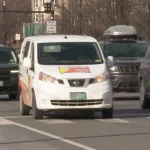
BURLINGTON, Vt. (WCAX) – Are you falling behind on your car payments? If so, you may be at risk of having your vehicle repossessed. National data shows at the end of 2023, car owners fell a month or more behind on loan payments at a much higher rate.
“At the end of the day you’ve got to make a decision– what do you pay for? Do you pay to feed your family, do you pay to put a roof over your head or do you pay for your automobile?” said Paul, who owns East Coast Recovery, a car repossession business out of Addison County. He asked that we only use his first name for his safety.
Paul says with increased costs for things like rent, child care and other expenses, car owners are running on fumes, which in turn, results in repos.
“We have to pick it up. It’s a job like everybody else. We’re sent out by the financial institutions because people have failed to stay in communication, people have been unable to make payments, and it’s got to be picked up,” he said.
According to data from the Federal Reserve Bank of New York, the annual rate for car owners behind a month or more on payments was 7.7% nationwide, the highest since the fourth quarter of 2010.
“When we show up there it’s the phone calls. It’s different when the tow truck shows up and we’re in the yard. They’re working with consumers, they’d rather have you in their car. Their goal is to keep you in the car. But if you’re not communicating with them, you’re not paying– that’s their money that’s out there,” Paul explained.
Typically, they repo cars after 60 or 90 days of missed payments. And he says their call volume will start to drop as tax season approaches.
Tim Bedard, the president of Burlington Mitsubishi, sees that, too. He says delinquency rates are starting to fall.
“We started to see some delinquencies in the summer, through the fall, in the winter, and we have now seen that level off… It seems that more people are being responsible with their income to their debt obligation, Bedard said.
At the end of the day, Bedard says banks are working with consumers to find solutions, and if you feel like you might fall behind on your payments, call your lender.
